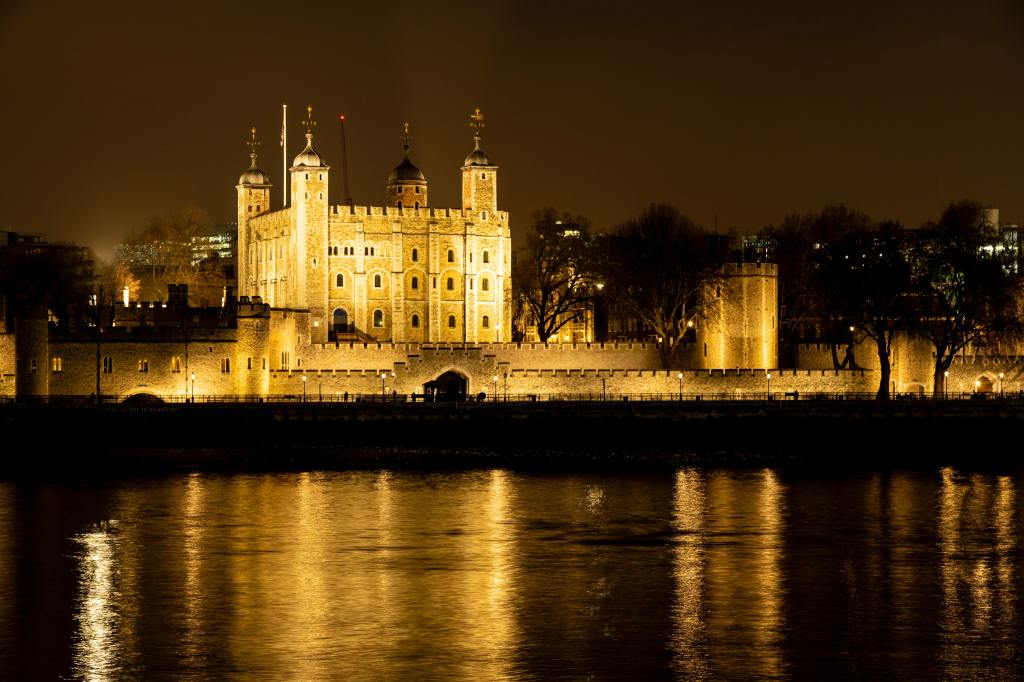
Next time I tour in London, I am checking in.
Photo by Nick Fewings on UnsplashTower of London.
It’s a sure testament to Shakespeare’s sleek language that I keep watching the three-hour histories. If facts are dull, the language sings them awake. Like the Star Wars franchise, he didn’t write them in order, and it is thought that King Henry, Part I was penned third, as a prequel. My grounding in the historic War of the Roses is firm enough, thanks to a general tendency to get interested in the drama, but it’s always a shock when Talbot, or Richard of York, or Henry VI or his son, get stabbed ….again.
The historic Henry VI was crowned a mewling babe at just ten months, with the Duke of Gloucester as Protector until the prince reached an age to govern. But what a weight! Who wants to wear the crown after a childhood haunted by duty and sacrifice? The three parts of Henry follow Henry and his queen, the Anjou Margaret, through their trials and a constantly shifting landscape of loyalties and prophecies fulfilled.
I like to think of a twenty-four-year old Shakespeare under contract to the theater to write these histories. No pressure, Will! I picture him, his nose deep in the non-fiction tomes that informed his the facts upon which his theater hangs. It seems to me, as a writer, as the sort of writing that one does when one wishes to be taken seriously – very, very seriously. It’s skillful, ambitious, erudite writing, on point, but often strangely bloodless for all the blood spilled on stage. A young writer in the writers’ room, desperately churning out lines of dialogue to meet with the producer’s approval, scarcely believing it himself when he pulled it off.
There’s ample drama to be mined in the facts. Henry IV, V, and VI all died young; respectively, of leprosy (gross), dysentery (jeez, battlefield), and a knife (thanks to the hunchback). After Richard the hunchback stabs Henry VI in the Tower of London, the drama will turn to the dispute among the three heirs to York, Edward (short-term king), Clarence (murdered; never a king), and Richard (coming in well with a reign under three years, slain on a the battlefield at Bosworth, and whose remains were in recent years positively identified with DNA and given a sovereign’s burial). Edward IV (York) and Henry VI (Lancaster) and Warwick argued about things for a number of years, snatching the crown back and forth, until Edward executed his brother Clarence, then died at 40 under mysterious circumstances. His brother Richard offed Edward’s two young sons (the “princes in the Tower” who continue to lurk in popular imagination) and grabbed the crown for himself, enjoying that uneasy limelight for just a handful of years. Months, really. Shakespeare doesn’t hold back: Edward a ruthless sea, Clarence a quicksand of deceit, Richard a ragged fatal rock!
And so fame and power are fleeting, and death comes for all mortals. Shakespeare’s best monologues return to this theme again and again. Another favorite saw is ambition that burns, and its brother, ambition thwarted. Margaret of Anjou, who owns all those Englishmen, is described as a tiger’s heart in a woman’s hide. And yet it is observed that her lines are cut more often from Shakespeare’s plays than those of any other other character.
Language I loved to read and hear: poltroons, Content thyself! (the medieval version of Get used to it!), to see how inly sorry gripes his soul, too much lenity. Things ill got had ever bad success. Crookback, foul misshapen stigmatic, dastard. I that never did weep now melt with woe. Silly sheep. Quondam for has-been. Cavil. Dauntless mind. With patience calm the storm. Jointure. Setter-up and puller-down of kings! (I really hear the young Will in this phrase.) Night’s black mantle and pitchy night are often invoked. Stir abroad for travel abroad (I love this). Cheerly seek. Currish riddles.
How can tyrants safely govern home / Unless abroad they purchase great allegiance? – Queen Margaret
What fates impose, that men must needs abide / It boots not to resist both wind and tide. – King Edward
What is pomp, rule, reign, but earth and dust / And live how we can, but die we must. – Warwick
Farewell, sour annoy. / For here I hope begins our lasting joy. – King Edward (I mean … the man say so. This is a great line to end on, and the perfect setup for Richard III.)



